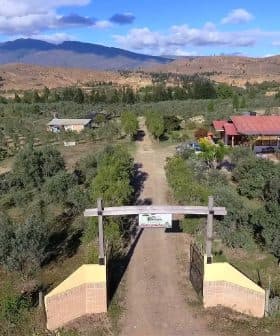Tourist Train in Provence Partially Fueled by Olive-Pit Biofuel
A vintage steam train in southern France is now powered by olive pit-based biofuel, significantly reducing its reliance on coal and making the operation more environmentally friendly. The use of olive-derived fuel not only makes running the train cheaper but also results in lower emissions and fewer impurities compared to traditional gasoline or diesel.
Olive pit-based biofuel is powering a vintage steam train in southern France, carrying tourists through the natural parks and the charming hills and villages of Provence, the heart of wine and olive oil production in the country.
For decades, the Train Des Pignes à Vapeur had left behind a trail of dark grey smoke from its coal-fired engines.
As the end of the 2022 tourism season approached, the cultural association that runs the train announced that its 44.5‑ton locomotive is now powered by olive-derived biofuel.
See Also:Farmers in France Confirm Grim Predictions as Harvest Gets UnderwayAccording to the study group for the Provence Railway Association (GECP), the current engine still requires some coal to function properly. Still, it mainly runs on olive pits shaped into large cylindrical “logs.”
One ton of coal can be replaced by 700 kilograms of olive-derived fuel and 500 kilograms of coal. While the solution does not only make running the train cheaper, it is also more environmentally friendly.
The GECP said they decided to make this change both to become more environmentally friendly and because coal was becoming increasingly difficult to find.
“Since ancient times, our mills in Provence have used olive pomace for indoor heating,” Guy Mausy, an engineer at the GECP, told La Provence. “Still, this fuel came in powder form, while we require larger pellets.”
The GECP said they got the idea from a local affiliate in Tunisia, which used the olive pit “logs” to operate furnaces.
A 2021 study in Spain has demonstrated the considerable potential of fuel derived from olive pits.
The researchers found that olive pit-based biofuel contains up to 4,500 calories per gram and is anywhere from 70 to 100 percent cheaper than gasoline or diesel.
Furthermore, its emissions are also relatively low, with fewer impurities than other types of biofuel since olive pits contain less moisture by the end of the milling process.









